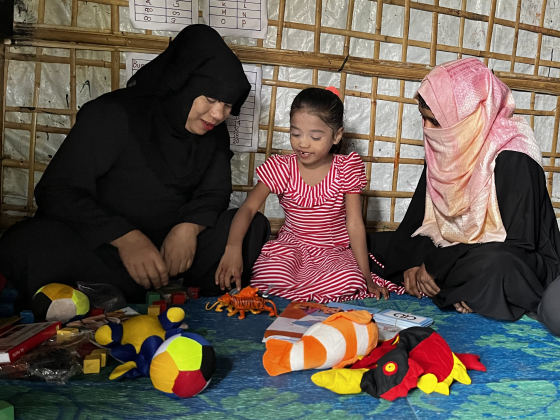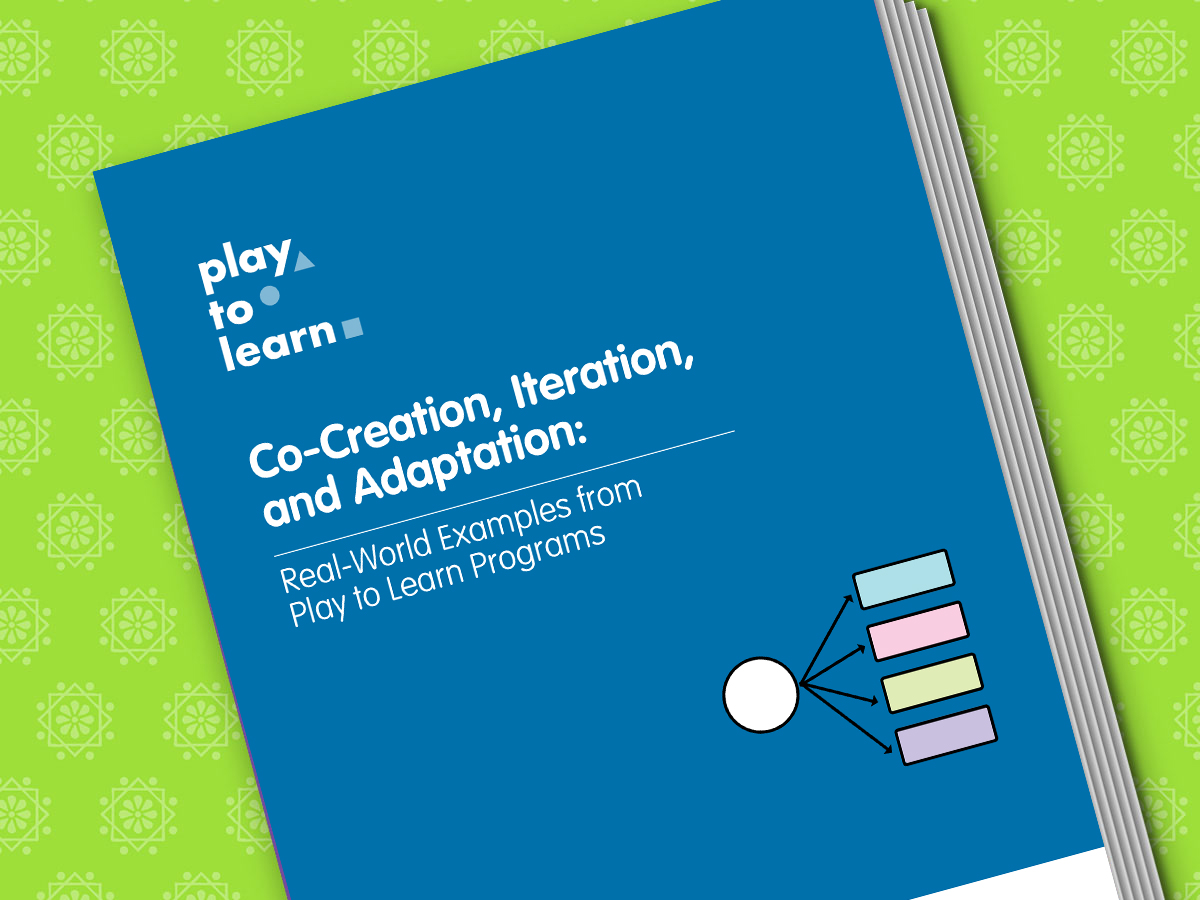Play to Learn worked with Rohingya children and families in Bangladesh, designing and developing a set of program models and media content uniquely adapted to their preferences and needs.
Here are key principles we drew from our experience:
- Identification and use of indigenous knowledge surfaces relevant solutions.
- Meaningful participation by partner staff and communities in engagement and co-creation activities is vital to effective programming.
- Flexibility across stakeholders – donors, partner NGOs, and communities – better enables change and adaptability.
- Effective co-creation can happen through formal or informal approaches, and lead to greater community engagement and representation in programming.
Identification and use of indigenous knowledge surfaces relevant solutions.
BRAC’s Humanitarian Play Labs engaged with Rohingya communities to reflect Rohingya culture, language, and practices in their Play Lab approach. This approach of collecting input, feedback, observations, and support fosters community ownership.
Meaningful participation by partner staff and communities in engagement and co-creation activities is vital to effective programming.
Practitioners designing early childhood development (ECD) programs should create diverse, relevant opportunities for community leaders, youth, children, parents, and others to exchange knowledge and co-create activities, program content, and approaches to delivery.
When IRC was starting Gindegi Goron, local staff were essential in going out to speak with leaders, parents, and other community members to gain insights and contact information for program participants. These relationships became even more vital to program implementation when COVID-19 hit soon after.
Flexibility across stakeholders – donors, partner NGOs, and communities – better enables change and adaptability.
Making needed adjustments to project timelines, goals, activities, and budgets requires donors, communities, and partner staff to approach the project with flexibility and trust to one another. All stakeholders should align on overarching goals to ensure they are synchronized as they adapt to changing needs.
Throughout the project, Play to Learn partners worked collaboratively with the LEGO Foundation to adjust project plans in response to unexpected changes. To learn more about how flexibility and adaptability were essential to the success of the project, check out the Core Elements report.
Effective co-creation can happen through formal or informal approaches and lead to greater community engagement and representation in programming.
Sesame Workshop sought input and feedback from community stakeholders to develop the first Rohingya Muppets, Noor and Aziz, and used formative research to test their appeal and cultural relevance.
Play to Learn partners applied different approaches to co-creation with communities depending on needs, resources, and timelines. The most important factor across all approaches was that the community was engaged. During the development of the Mother-Child Dyad Model, community feedback led directly to the creation of the companion Father’s Engagement Model to respond to the need for gender-specific parenting support.


